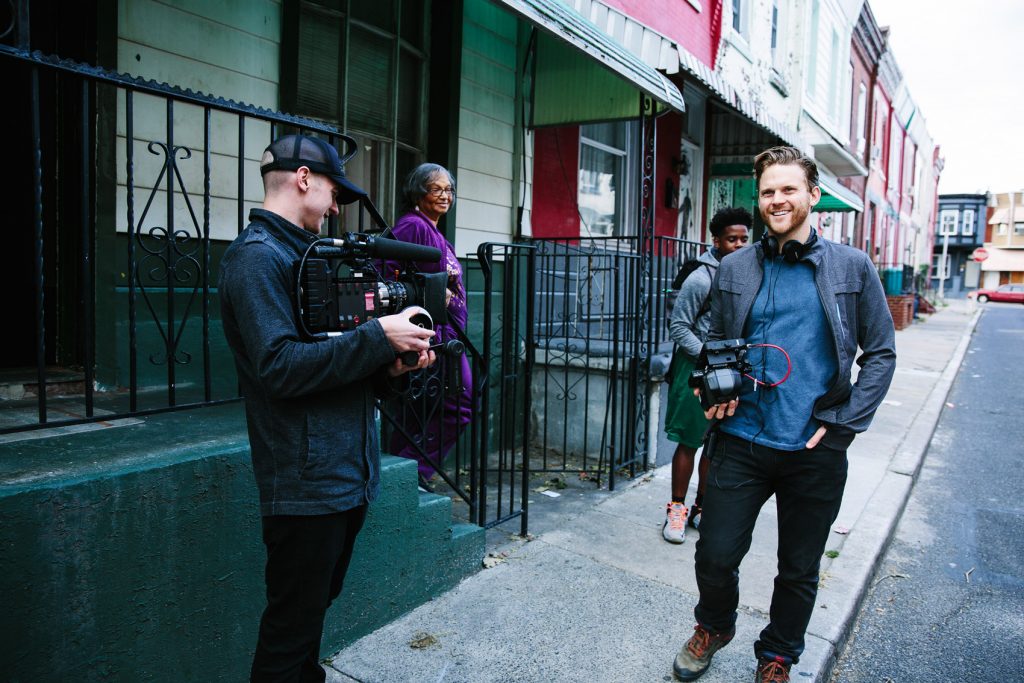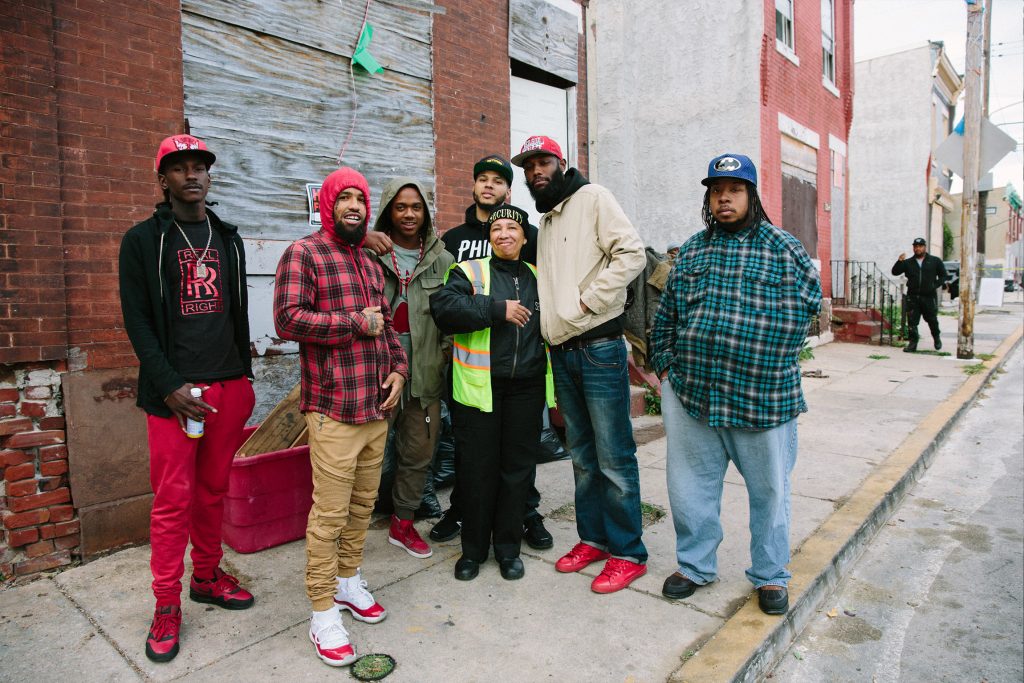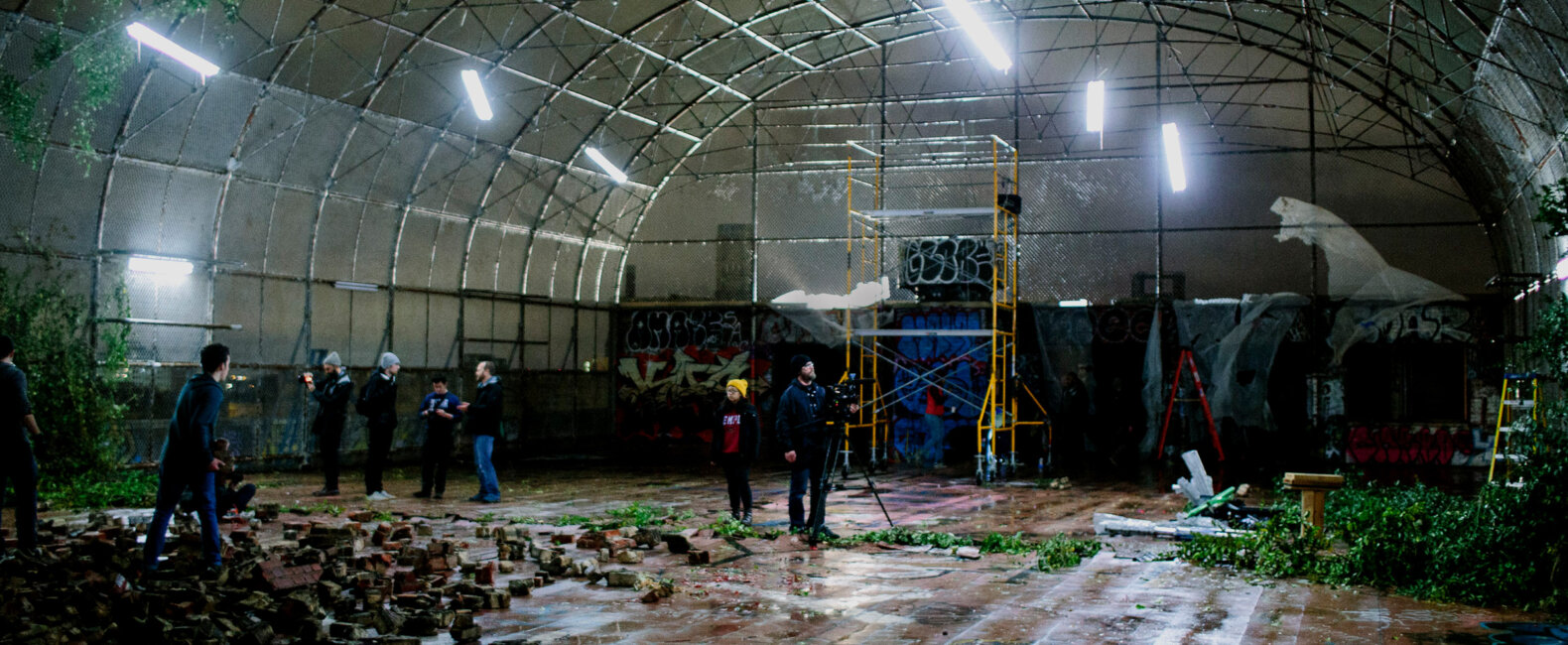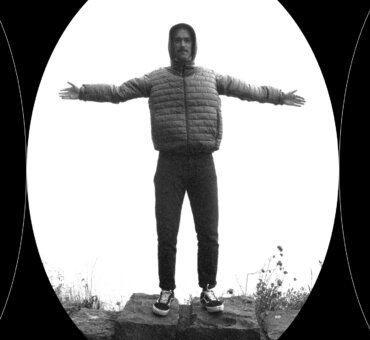Filmmaking, for many, is a treadmill. You spend so much time clawing your way into a position to make films for a living that you find yourself in a place where you’re not making the films you want to be making. Or at least the films you’re personally invested in making. There are deadlines. There are clients. And, of course, there are bills to pay. Sometimes years can go by without stepping off of the treadmill and our big ideas for passion projects do nothing but collect dust. It happens to the best of us. But, here’s the good news: by working to put yourself in this position, you’ve (maybe unknowingly) given yourself the tools you need to pull off a film you only would’ve dreamed of making in your early days.
Dan Walser and Ricky Staub of Neighborhood Film Co. shared some practical approaches to how they found the time, funding, and
Here are 4 things we took away from their keynote speech that can help you become a more disciplined, impactful filmmaker.
Treat a Passion Project Like a Real Job
It’s easy to fall into the trap of viewing your passion project as a less-than-legit pursuit, but that’s the quickest way to undermine the success of your film. The guys at Neighborhood made that crystal clear. Dan Walser put it like this: “If anyone you invite to work on your film feels for a second that this is a side project, they’ll start treating it like a side project. And your film will ultimately suffer. Prep it like a real job. Shoot it like a real job. Do posts like a real job. Do everything with the utmost legitimacy.”
Take this wisdom to heart: If you really want your film to be a vehicle for your success as a filmmaker, treat it as such. And be sure to surround yourself with people who feel exactly the same way.

Set Aside Your Creative Tithe
Great films can’t happen without some sort of capital. But Ricky Staub developed a method that ensures you’ll eventually get every last dime you need to make it happen.
“I call it ‘creative tithing,’ and it’s what made shooting The Cage possible,” said Staub. “After every job, whether we made $1,000 or $100,000, we set aside 10%. If you do that 10 or 20 times over the course of a year or two, you’ll start to accumulate a pretty big nest egg. And that allows you to say, ‘That money is for nothing else but for us to make passion projects.’”
If you’re struggling to scrape together the dough to make your film, it may be time to rethink how you save. The more disciplined you are about financing your film, the closer you’ll be to bringing it to life.
Move Everything Else to the Margins
It’s easy to get caught up in the technical side of the work we do, but having the know-how for great filmmaking is only half the battle. Developing the right mind-set as a filmmaker is just as important.
“We wanted to approach The Cage more as a feature, not like a commercial. So the first thing we really fought for was time,” said Walser. “That’s got to be your first step if you want to create an original piece: fight for time. I’ve had a lot of conversations with filmmakers who want to do passion projects. And typically, they’re trying to fit it into the margins of their schedule. But you have to move everything else to the margins. You have to focus solely on the project you want to do. Because when you rush it, that shows up on the screen.”
Difficult as it may be, if you want your passion project to be truly excellent, then you have to be able to prepare and craft it without distractions. And that means putting it ahead of everything else.

Live a Life That Helps You Tell Stories
All art is, in one way or another, autobiographical. That’s why Staub decided to walk the walk before shooting even a single second of The Cage.
“Before I started Neighborhood Film Co., I lived in and operated out of a homeless shelter in Philadelphia for a year. It was a completely terrifying experience in so many ways, but it was ultimately very helpful for me,” said Staub. “I witnessed how the system was broken, how people were broken, what pained them and also what gave them joy. Six years later when I started filming The Cage, having witnessed all of those beautiful things amongst a really dark world came to fruition for me.”
Driving home the importance of letting life influence your work, Staub added, “I think one of the most imperative things you can do as a filmmaker is live a life that helps you tell stories. Be empathetic. Be a listener. Absorb the world around you. The choices you make and the people you meet can ultimately show up on the screen.”
If you’re going to make films with heart, you can’t skimp on authenticity. You don’t necessarily have to live in a homeless shelter for a year the way Staub did, but you should make it a point to walk a mile in the shoes of the people in your story. Better yet, make it two miles.























































































